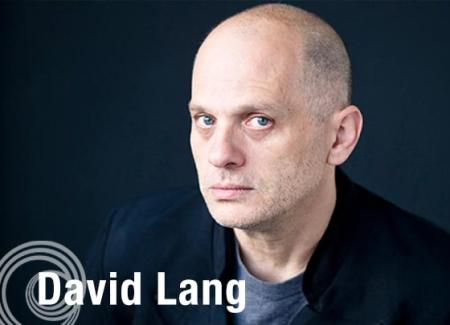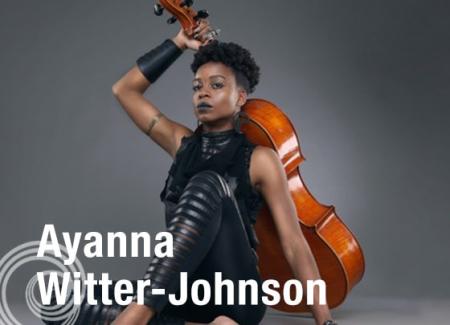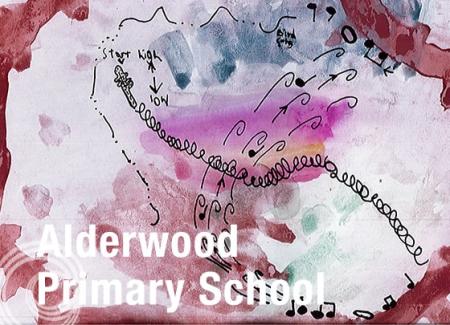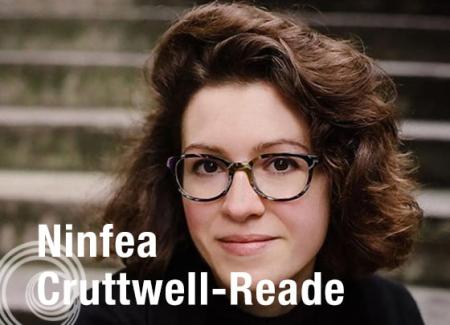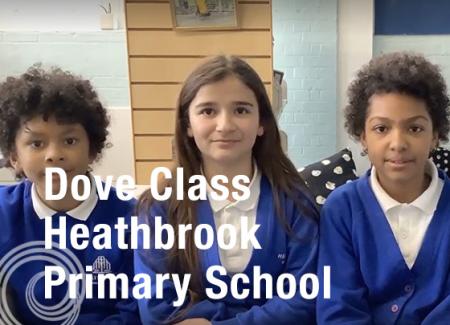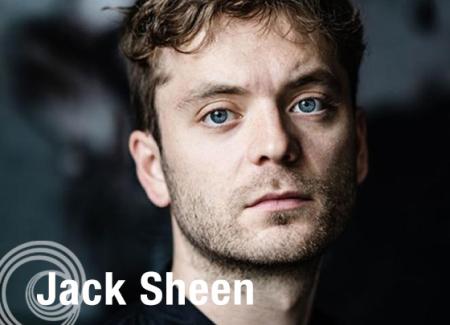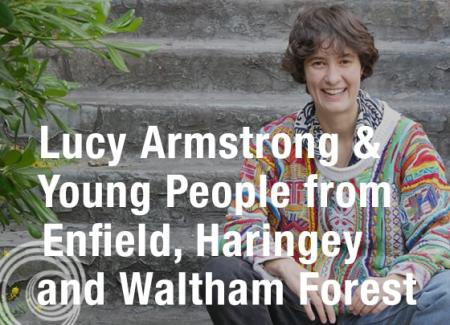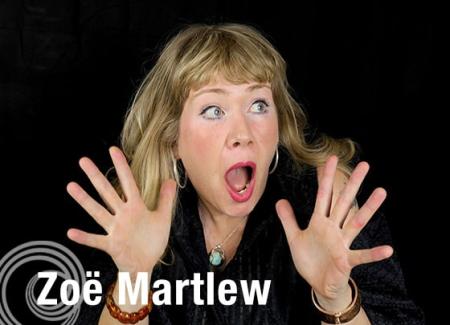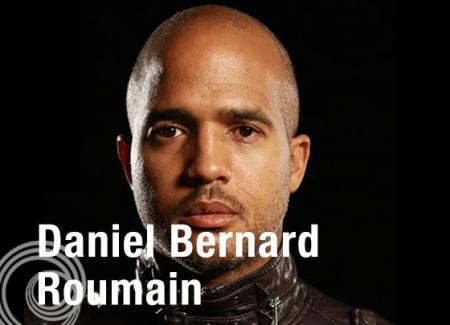Welcome to our Sound Out Schools Concert!
This special concert will bring together young people from across the UK to explore how to compose and create music, hear our musicians perform pieces by living composers and be the first audience to hear new works by young people who have taken part in our Composition Challenges.
Find out more about our composers and their music below, and if you haven’t already taken up one of our Composition Challenges, please do have a go – anyone can become a composer!
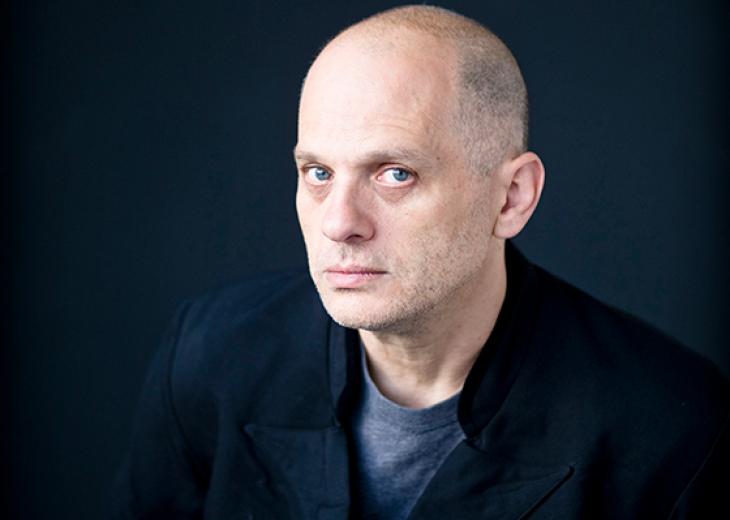
David Lang (b.1957)
David Lang is a composer who lives and works in New York. As well as composing, he teaches composition and helps to run a brilliant music group called Bang on a Can.
Tiny Dance Party
In Tiny Dance Party each instrument plays rhythms independent from each other, repeating them over and over. It’s almost like each instrument is having its own tiny dance party, but alongside its friends!
This is the first time this piece has been played in the UK – its UK premiere. Premiere is a French word meaning ‘first’. Can you count how many other pieces in our concert are receiving their first playing or premiere today?
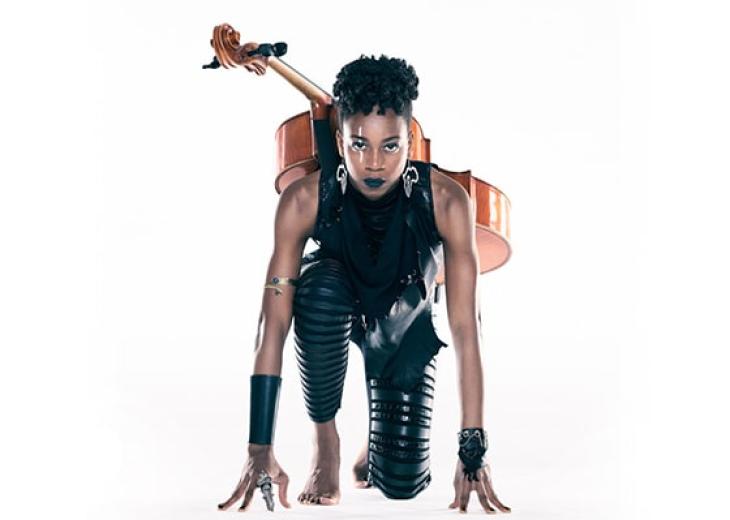
Ayanna Witter-Johnson
Ayanna Witter-Johnson is an English composer, singer, songwriter and cellist. She began playing the piano when she was four years old and the cello at 13 and studied in London just along the river from the Royal Festival Hall at Trinity Laban Conservatoire of Music and Dance. She then went across to America to study in New York.
Her music mixes classical, jazz, reggae, soul and R&B, to create her unique vibe and style. As a composer, Ayanna has worked with lots of famous orchestras and ensembles.
She has recently headlined in venues such as London’s iconic Jazz Café, Kings Place, and Wigmore Hall. Ayanna’s composition ‘FAIYA!’ was performed by the London Symphony Orchestra in Trafalgar Square and many of Ayanna’s tracks been played on the radio, including BBC Radio 1.
Let the Vibes Begin!
I was delighted to be invited to compose a fanfare for the Norfolk & Norwich Festival in 2022. I took the opportunity to celebrate my grandparents, who were part of the Windrush generation (people arriving in the UK between 1948 and 1971 from Caribbean countries). The piece was a chance to celebrate both my Jamaican and British heritage and share a new and inspired mix of genres (reggae, classical, folk and jazz) with the Norfolk & Norwich Festival audiences.
Let the vibes begin! is a bold, rhythmical and optimistic salute to the hope of a brighter future. Its playful rhythms and cheeky harmony signal the beginning of a new chapter ahead.
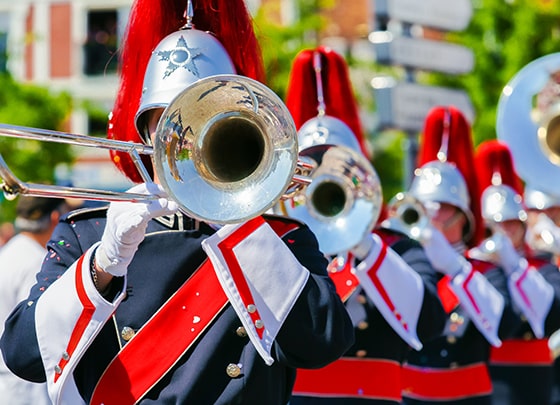
Activity 1
Let the Vibes Begin! Is a short rhythmical piece in the style of a March. A March is a piece of music with a strong regular rhythm which is specially written for marching to and most frequently performed by a military band.
- Get in a circle with your class and start marching on the spot
- Question and answer - choose a leader to clap a simple rhythm alone and as a class repeat the rhythm back. It could be something like long - long - short - short - long
- When you have improvised various rhythms get into small groups to compose your own rhythm using body percussion or other instruments.
- Share your ideas with the rest of the class then decide a structure for your piece. Which order will the rhythms go in? Do some work if they are played together?
- Finally, compose an ending for your piece – will you end loud or quiet? Everyone together or gradually fading out one by one as if the marching band is heading off into the distance...
Years 3 and 4, Alderwood Primary School
The Seasons
Alderwood Primary School sent in lots of excellent postcard pieces, in the end we had to put it to a vote for which one to play!
We choose this Postcard Piece because of its use of abstract colour mixed with clear instructions, including some musical notation, hinting at the rhythm they want the musician to play.
Activity 2
Have a go creating your own Postcard Piece with our Composition Challenge!
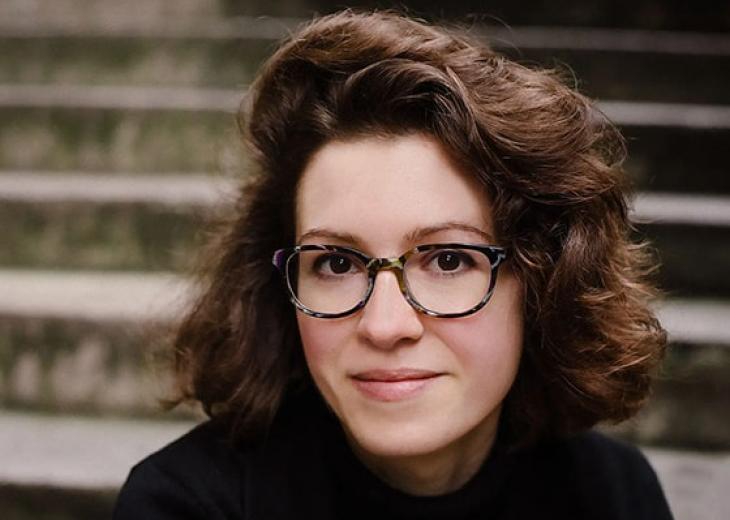
Ninfea Cruttwell-Reade (b. 1989)
Ninfea Cruttwell-Reade is a composer and cellist (like Ayanna!) and she lives in Edinburgh. She likes composing for all sorts of instruments including some that are very, very old and some that are damaged or broken. She has had her music played by musicians all over the UK and in America and is currently composer-in-residence at Glyndebourne Opera House, composing music to tell stories.
Three Etudes for Piano and Flower Pots nos 2 & 3
Ninfea’s piece includes an unusual instrument – a set of flower pots – played by a percussionist. These are called ‘found objects’ which you can learn more about in the exercise below. The piece is inspired by the piano in the 19th Century, the instrument itself was being developed and more people had pianos in their homes, which led to lots of music being written for it, including etudes, another French word meaning ‘Study’.
Listen to Ninfea herself introducing the piece and hear it played by our friends at Psappha.
Many thanks to Psappha for agreeing to include this film in our Sound Out programme note.
Activity 2
Ninfea Cruttwell-Reade's piece uses ‘found objects’ as a musical instrument. Found objects are everyday items you find around you that can make sound. They have been used in music throughout time, but were explored in depth through the 20th century with composers such as John Cage and Karlheinz Stockhausen.
- As a class or large group set a timer for 30 seconds, sitting as still as possible and without talking, listen to the sounds you hear around you (it can help to close or put your hands over your eyes). Can you hear sounds outside of the building you are in? Sounds inside the building? Within the room? Within your own body?
- Share what you heard with the rest of the group/class.
- Have a look around the room you are in, is there an object that can make interesting noises?
- Get into small groups and share the different sounds your object can make, how many can you find on that object alone?
- Get back into a large group and repeat the first step. This time, see if you can add a sound from your found object into the silence. Careful! Try not to play when anyone else is playing.
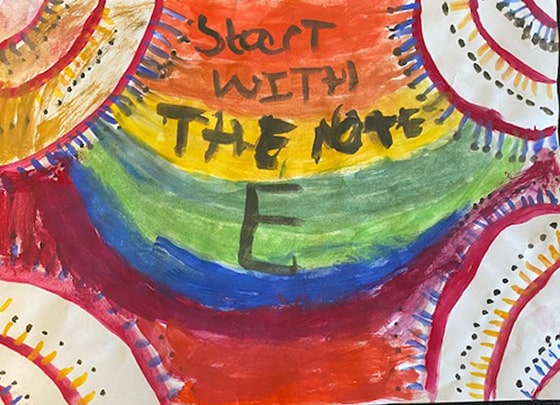
Similar activities and extensions can be found in our Composition Challenge Deep Listening – click here to see the challenge.
Composition ChallengesDove Class, Heathbrook Primary School
Numbers and Patterns
The students of Heathbrook Primary School sent in a video of their composition alongside their score, which was helpful when we were working out how to play the piece with the London Sinfonietta ensemble. They started with a number line to create melody (the tune) and we’ve used this number line to create rhythm and harmony (the accompaniment).
Patrick has taken the melody from Heathbrook as well as Holy Trinity’s Hurdy-Gurdy class to make this brand new piece of music created using London Sinfonietta’s Numbers and Patterns Composition Challenge.
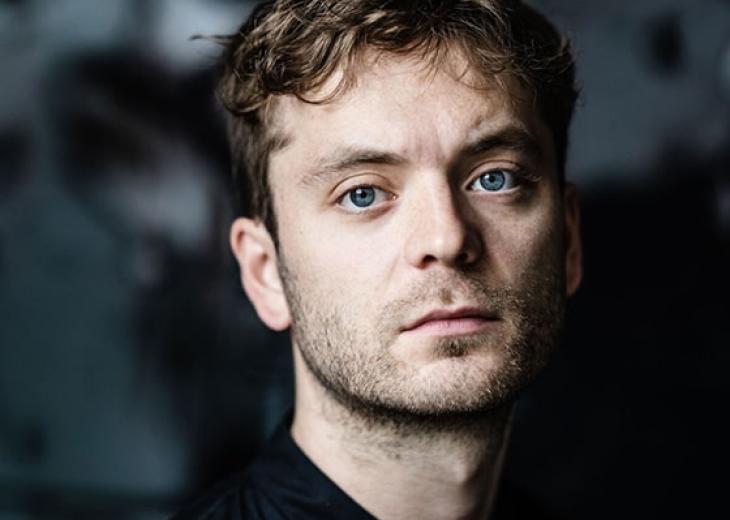
Jack Sheen (b. 1993)
Jack Sheen is a conductor and composer from Manchester. His music includes music for orchestras and ensembles alongside music that puts live musicians, audio, film, and dancers in large places such as art galleries or warehouses.
RIP Club Music
In RIP Club Music, the players are given six lines of music, with instructions to repeat them a certain number of times. The players have the freedom to choose which order to play the lines of music in, and as the music overlaps with other parts it makes relationships between different instruments. Overall, this style of composing creates a sound world rather than a distinct set of tunes.
Activity 4: Building a Shed
In Jack Sheen’s RIP Club Music, each of the different instruments play their own independently looped parts, which creates an overall atmosphere for the music. In this fun activity you will create your own soundscape based on the idea of building a shed. This activity is a perfect way to end a lesson or the day.
- Get in a large circle as a class and practice keeping a beat by either clicking your fingers or clapping your hands.
- Using call and response (teacher/leader then class) teach this chant to the young people:
What are you doing? (call)
We’re building a shed (response)
Can I join in? (call)
Of course you can (response)
- Ask the class to think of some different actions and associated noises with building a shed and practice them as a group. How many different sounds can you think of?
- Start the class off by clapping or clicking the beat. Now move into the middle of the circle and begin building your shed.
- Encourage each young person in the group/class to join you one at a time in building the shed. Each time someone joins, repeat the chant above.
- See if your shed can involve the whole class. Perhaps you can pause the building of your shed and identify gaps in the shed – have you thought about the roof? The floor? What about the inside of the shed? Are there items to build inside?
- Everyone in the circle can be involved by keeping the beat, but careful not to speed up!
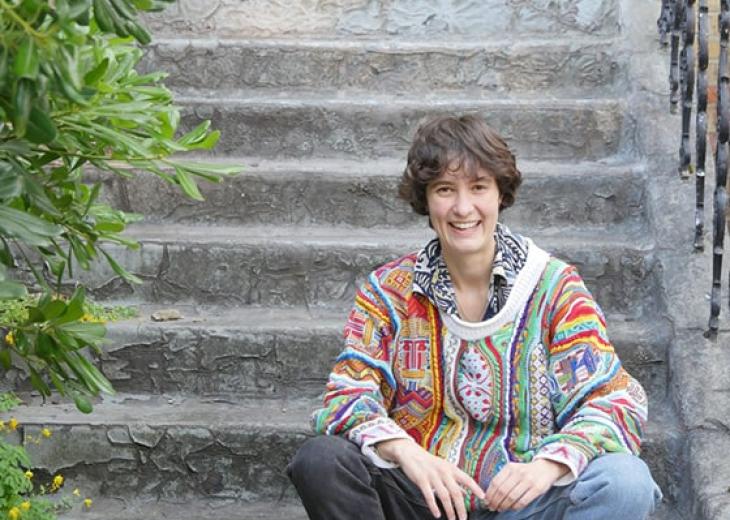
Lucy Armstrong (born 1991) and Young People from Enfield, Haringey and Waltham Forest
Lucy Armstrong is a British composer based in London. Her work is eclectic and theatrical; she enjoys composing music with other people and also for theatre. In 2018, she wrote an opera that was performed at the Royal Opera House and recently finished writing an opera all about football with a team of six composers!
Her music has been performed in London, Croatia, Portugal and Japan.
Patterns and Mirrors
Lucy has worked with young people from secondary schools in Enfield, Haringey and Waltham Forest to compose a brand-new piece for our concert today! She has taken their ideas, developed through workshops earlier in the year and combined them with her own music. The workshops took inspiration from London Sinfonietta’s upcoming concert Reich/Richter, studying ways to develop music in the minimalist style of composer Steve Reich and using paintings as a starting point for their music.
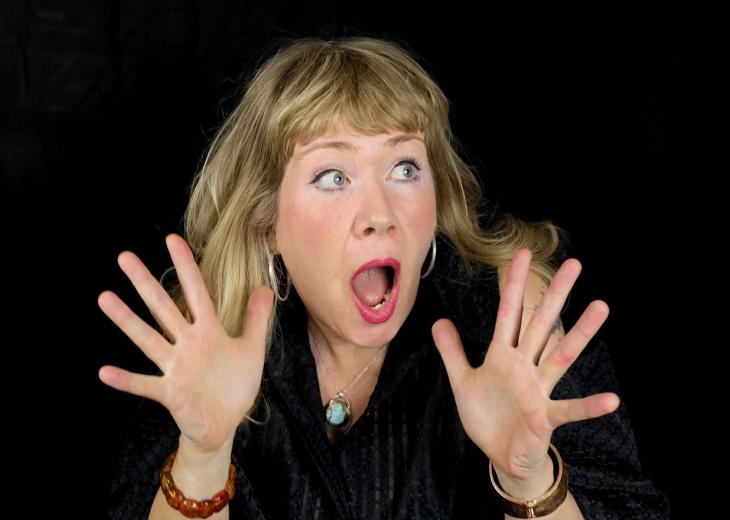
Zoë Martlew (born 1968)
Zoë Martlew takes on many roles in the world of music - cellist, composer, performer, cabaret artist, educator, creative mentor, podcaster and concert narrator. She has worked with some of the world’s most renowned contemporary music ensembles, chamber groups, improvisation, film, electronica, multi-media, pop, rock, dance and theatre companies and her own one-woman show, Revue Z.
Wicca Wacca Ow
Wicca Wacca Ow is a celebration of the power of singing and of the power of music to make you feel good. Featuring the whole Sound Out Young Ensemble, London Sinfonietta Players, solo singers and you - the audience - it’s sure to raise the roof of the Royal Festival Hall! Zoe has prepared a video for you to learn some of the piece in advance – join in and have fun!
Learn the piece with Zoë!
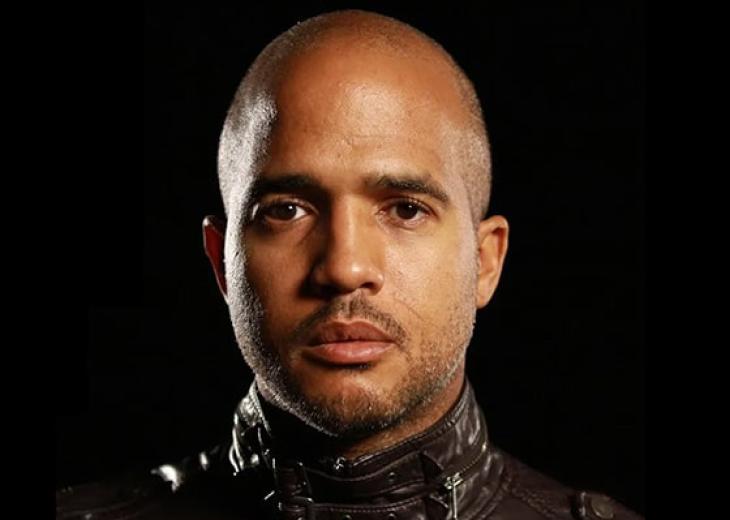
Daniel Bernard Roumain (born 1971)
Daniel Bernard Roumain (DBR) is a Black, Haitian-American composer who combines classical music with jazz, hip-hop and rock. He enjoys working with people to create music, from professional musicians such as Lady Gaga and Philip Glass to young people in a classroom or adults in the community.
Fast BLACK Dance Machine
Fast BLACK Dance Machine is an energetic, rhythmic piece, with drumkit driving the pulse of the music throughout. Each instrument gets a moment to shine, just like in jazz music when instruments take solo moments. At our Sound Out concert you’ll hear a short excerpt from the longer piece.
The London Sinfonietta
The London Sinfonietta is one of the world’s leading contemporary music ensembles. We perform music by living composers, commission new works and engage people of all ages in creating new music.
The London Sinfonietta musicians performing in the Sound Out Schools Concert are:
Sirius Chau flute
Jordan Black clarinet
Philippa Mo violin
Tamaki Sugimoto cello
Clíodna Shanahan piano
Olly Lowe percussion
Patrick Bailey conductor and presenter
Composition Challenges invites young people, teachers and schools to create new music for the London Sinfonietta inspired by the works and musical ideas of living composers. Aimed at KS2/3 and free to take part.
